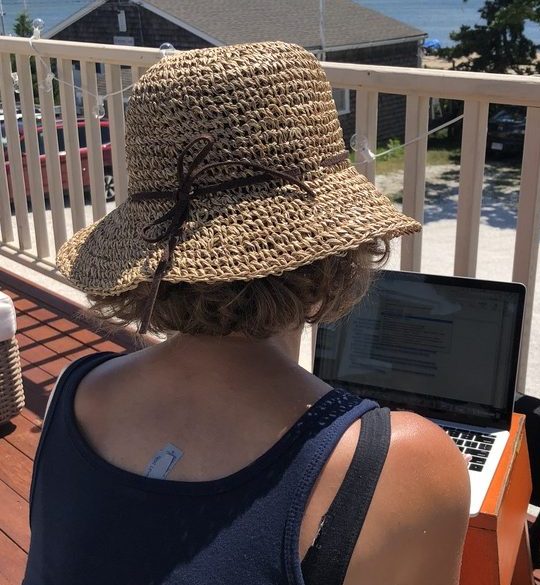CEO. Chief. Boss.
I had not always explicitly aspired to be the number-one leader, but my whole life had been building up to it.
“I’d work for you,” peers told me when I was early in my career. “You’re wise beyond your years,” I’d been told for decades before that. When a CEO role came my way after nearly a decade as a health care marketing executive, I jumped on it. I even burned some bridges to get there. And when that job ended two and a half years later after the company got acquired, I did not aggressively pursue another. Instead, I retreated to my home office to recover. Learning to be a CEO in an intense turnaround environment had drained me. Instead of continuing to work myself into the ground, I decided to focus on recharging.
At the end of a job interview process I had opportunistically entertained, the recruiter called me. “It’s you. They want you.” But I didn’t trust that I had the reserves I would need or the energy to handle the role’s challenges. And I knew enough to know that there’d be challenges. There always are, even in the best jobs. Instead of jumping in to someone else’s challenges, I tended to myself. What did I care most about? What would I regret not having done with my career?
I started interviewing people about what Obamacare had meant to them. I published my first op-ed about it on my own. I remembered how much I love doing consumer research. And writing about it. “I think I may have a book in me,” I said quietly to friends who were asking what I was up to. “Great!” my best friends said. “Do it.”
Still, I kept that voice quiet. I pursued a quasi-academic appointment to give myself time and space. I created a “playground,” as one of my mentors called it, to develop my own ideas, and to finally listen to my own voice.
Once I got there, I started to question myself. “I don’t know how to do academic research,” my inner doubt said. “You’re doing it wrong!” a more critical inner voice screamed. It was difficult, but knew I had to ignore that voice and move forward with what I wanted to do: consumer research.
I interviewed anyone who would talk to me. I amassed dozens of consumer stories. As I kept going, my brain lit up with excitement, empathy, and ideas. “You do sound like you have at least one book in you,” said an agent I reached through a close contact. She told me to send my proposal when it was ready.
I bought a book about writing a book proposal. I kept interviewing consumers. I learned countless new tools to support my research. I navigated the Institutional Review Board process, set up a new conference line to record phone interviews, researched and selected a transcription service. I found a qualitative research tool that cost $12.95 per month instead of $2,500 a year. I took a workshop on writing for social change.
Nine months after that first conversation, I sent the agent my proposal. A spate of lovely rejections came from publishers. “This is an important topic” or “She has a great voice” they said, but all ended the same way: “It’s just not for us.”
Then, in early January, I finally got an offer. It wasn’t the best proposal, but nonetheless, it was an offer to publish a book. My narrative had shifted from “I may have a book in me,” to, “I’m working on a book.” Now, again, the narrative shifted to, “I am writing a book.”
That confident reframe gave way over and over to self-doubt and frustration. “Writing a book is a journey of loneliness and heartache,” a writer had told me in the earliest stages of my inquiry. I grew to understand her point.
But along the way, stripped of any sense of expertise or mastery that I had built over my two-decade career, I learned to be new again. I didn’t just learn how to do things, like craft a book proposal, read a publishing contract, or ask better questions to elicit more interesting stories. I learned that even in middle age, I can learn new things. I can start something new and finish it. I can set my own priorities, frame my own questions, and pursue my own answers. I also learned that I can always crack open my laptop and write.
“So you’re an author?” a young woman in a Kyoto cooking class said last summer when I told her I was writing a book. I hesitated. I did not feel like an author. I had certainly not mastered the craft or the business of writing. But I saw myself for a moment through the eyes of this young professional, just starting her career. So, I answered the most honest way I could.
“I’m working on it.”

Follow us here and subscribe here for all the latest news on how you can keep Thriving.
Stay up to date or catch-up on all our podcasts with Arianna Huffington here.


